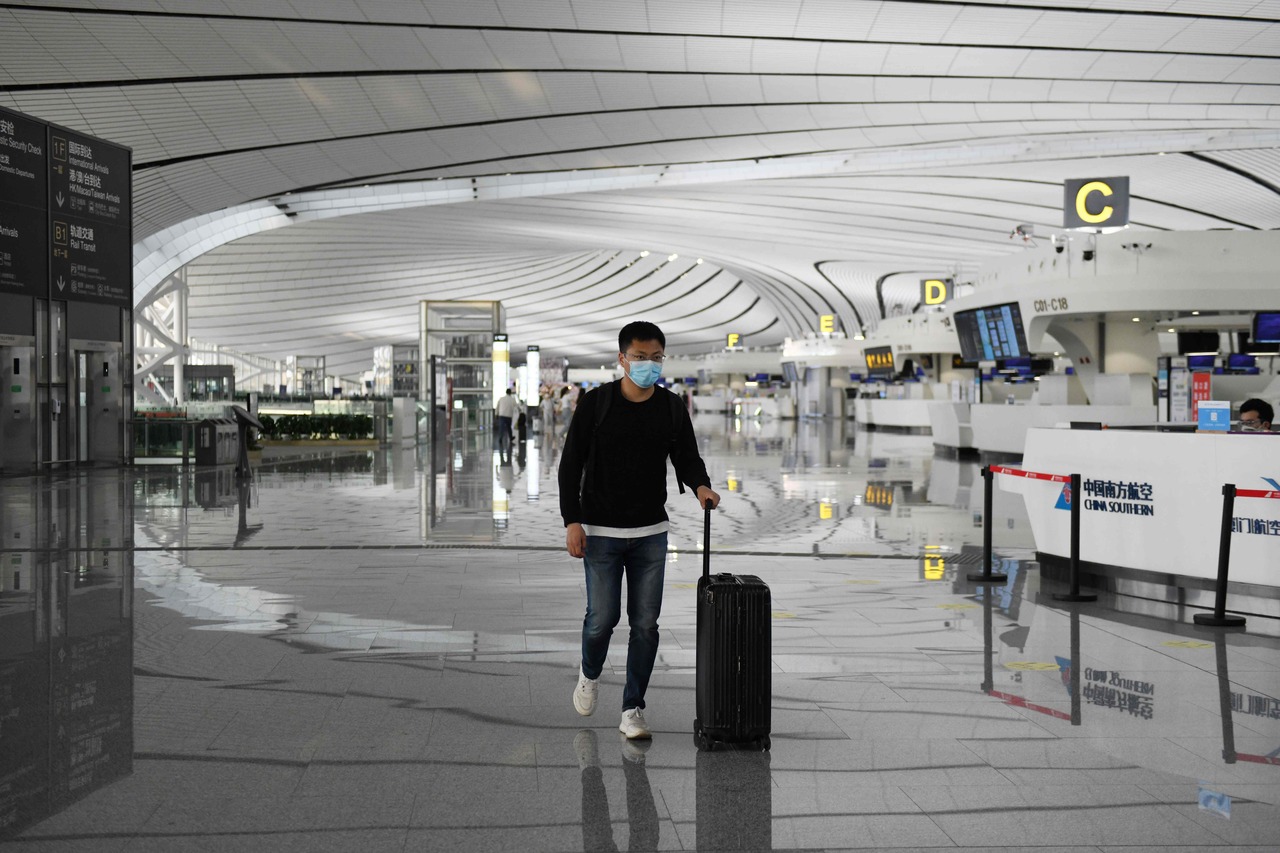China gives fresh details of virus response, denies cover up
Sign up now: Get insights on Asia's fast-moving developments

China has banned most foreigners from entering its borders since late March.
PHOTO: AFP
BEIJING (BLOOMBERG) - China said it did not know until Jan 19 how infectious the new coronavirus is, pushing back against accusations that it intentionally withheld information about the severity of the outbreak in Wuhan from the world.
While Chinese officials knew that there were signs of human-to-human transmission earlier, it was hard to ascertain the new virus's level of contagiousness, said Zeng Yixin, vice-minister of the National Health Commission, at a press briefing in Beijing on Friday (May 15).
There are diseases like HIV that while infectious, are not easily transmitted from person to person, he said.
It was only on Jan 19 that Chinese scientists concluded the virus spreads easily among people and China released that information to the world the next day, said Zeng.
The accounting of events from top officials came as China faces growing blame for a delay in sounding the alarm about the coronavirus, which allowed people to spread it unwittingly for some time.
Zeng was responding to an Associated Press report in April that cited confidential documents showing Chinese officials waited six days before President Xi Jinping warned the public of the dangers of the virus outbreak.
The alleged delay resulted in millions of people travelling from Wuhan to elsewhere in the country and the world, seeding a pandemic that has now sickened over 4.4 million people and killed over 300,000.
Giving a rundown of events since the crisis began, Zeng said that China concluded on Jan 9 that it was dealing with a novel coronavirus and began developing test kits the next day. On Jan 12, it informed the World Health Organisation (WHO) about the outbreak. On Jan 14, a national meeting of provincial health officials was held.
"Many uncertainties remained. We understood there's more research needed on human-to-human transmission and we couldn't rule out the chance of a further spread of the virus," said Zeng. "But we couldn't reach conclusions to many questions."
Besides its alleged delay in disclosing information on the virus outbreak at an earlier stage, China has also faced skepticism about its official tallies of deaths and infections.
The pandemic has revived tensions between the world's two largest economies. China and the United States are escalating disputes from visas to supply chains as the two countries continue blaming each other regarding the origins of the virus, a mystery that global experts are trying to unravel.
While the number of infections has dropped dramatically in China, the nation still faces the threat of a second wave after a new cluster emerged in its north-eastern region ahead of high-profile political meetings scheduled to convene next week in Beijing.
Xi on Thursday called for stronger measures to contain any risk that could undermine the country's success so far.
In Wuhan, officials have been directed to prepare for mass testing the entire population of 11 million after new cases were reported for the first time since the city's lockdown lifted in April.


